Owning and managing a training project is a difficult job. Learning and development professionals often find themselves tasked with running a project with little or no experience in project management. When you’re dealing with cross-functional teams, stakeholders from different business units, and multiple subject matter experts, it can feel like an overwhelming task.
Selecting a project management model to help you plan and execute the project is only half the battle. Project management is mainly a people management role, so developing a specific set of soft skills is what really makes or breaks a training project.
Developing these skills enables you to plan a project effectively, keep it running smoothly, and foster productive working relationships amongst your project team.
1. Planning and Organization
Every project needs a plan, but when you’re working with a large group of people or a project team that includes members from other business units, developing a clear and detailed plan is essential to success.
Not only are plans important, but documenting them and sharing the plans with the team ensures that everyone understands the goals, timelines, and individual responsibilities. Detailed project plans will help you avoid all sorts of misunderstandings and mishaps down the line.
Organization goes beyond the project plan itself. Throughout the project, you’ll likely be dealing with collaboration and different drafts and documentation. Staying organized includes:
- Storing and sharing of documentation so it’s easy for everyone to find what they need
- Creating meeting schedules with specific goals and agendas to keep the project on track
- Ensuring the plans and documents are clearly communicated to all project team members
Keep yourself and your project team organized with this free downloadable template!
Project Plan Template
2. Leadership
Training projects can quickly descend into chaos. Stakeholders can request changes out of the blue, miscommunications can occur, and it can be challenging to keep subject matter experts engaged.
Strong leadership from the project manager is essential to avoiding this kind of chaos. Establishing strong leadership over your project means:
- Making sure you are the touchpoint for all questions and decisions
- Fostering open and honest communication amongst the team
- Being decisive and having a strong aptitude for problem solving
- Taking ownership and accepting accountability for the progress and results of the project
3. Communication
Project teams need strong lines of communication to make sure deadlines are hit and any problems are quickly resolved. But communication isn’t always so simple.
Many training project teams are geographically dispersed, especially in a work-from-home or hybrid work environment. You might need to find ways to digitally collaborate and host virtual meetings instead.
You can foster positive communication amongst the team by:
- Creating transparency around all decisions and discussions
- Creating a project charter that specifically outlines how and when the team will communicate
- Making sure everyone’s voice can be heard
- Encouraging questions and asking plenty yourself as well
4. Conflict Resolution
It might feel like a project with no conflict is a successful one. But, in reality, lack of conflict can indicate that people are not engaged or don’t care enough to voice opinions or objections. In turn, the quality of your outputs may suffer.
Conflict doesn’t have to mean hostility. It’s up to the project manager to create an environment where all team members can voice opinions in a respectful manner. That way, your project team can engage with each other on decisions and reach the very best outcome for stakeholders and learners.
Looking to brush up on your project management skills? Try this course created using insights from award-winning eLearning designer, Tim Slade:
Free Course: The Fundamentals of Successful eLearning Project Management
5. Flexibility
While planning and organization are key, so is flexibility. Things can change over the course of a project, either due to external influences or rapid iteration by the project team.
Project managers need to be flexible when it comes to plans so they can continue to manage the team effectively through change and keep the end goal of the project in sight.
If you’re dealing with stakeholders and subject matter experts as part of the project team, you might also need to be flexible with the project schedule. Assisting in the development of training is likely a secondary role for these team members. They have other priorities and workloads to focus on. Clear communication about deadlines and workload from the beginning can help, but you should also be prepared to incorporate a certain level of flexibility.
6. Budget and Task Management
During the course of a training project, it’s easy for costs to rise and even spiral quickly out of control. Ideas and suggestions may be put forward with little thought to the costs associated for more complex learning content.
As the project manager, it’s up to you to manage the costs and ensure your team is sticking to the budget. That being said, you might be in a situation where there is extra budget available. In that case, you’ll have to prioritize which extras to take on and which should be abandoned.
7. Critical Thinking & Problem Solving
Complex training projects can present some complex challenges for the project manager. You could be dealing with sudden changes in scope, team conflict, disengaged SMEs, disagreements over design decisions and many more.
When issues like these crop up, it’s important to be able to remain calm under pressure and engage critical thinking to come up with practical solutions. When in doubt, refer back to the goals of the project and find the path of least resistance and maximum efficiency to get the project back on track.
Build strong leadership and flexibility into your training projects with an Agile Learning mindset. Learn more in this free eBook:
The Beginner’s Guide to Agile Learning




